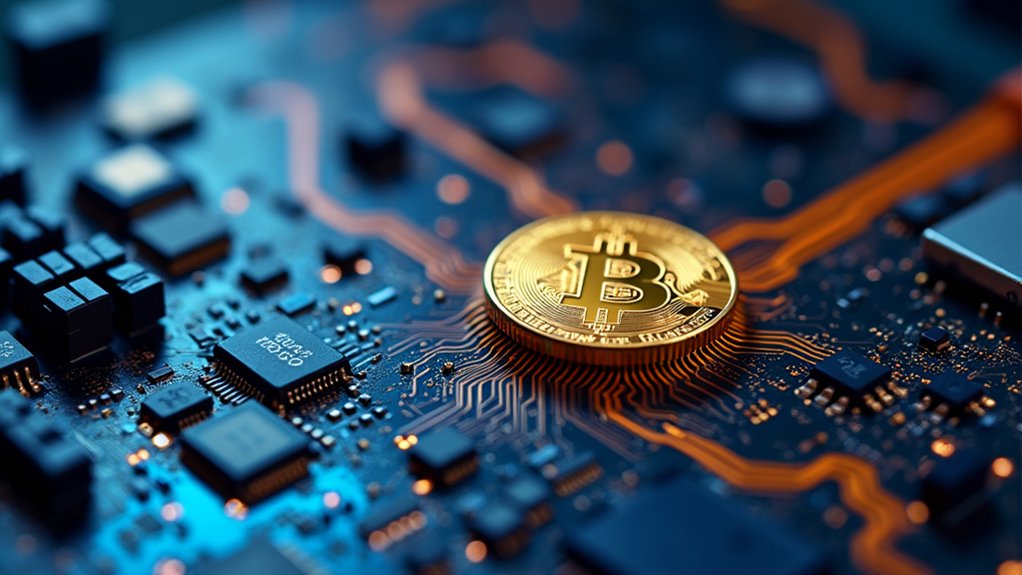While the cryptocurrency sector has weathered numerous transformative phases—from the speculative mania of 2017 to the institutional adoption wave of 2021—the emergence of artificial intelligence integration represents perhaps the most substantive evolution in digital finance since the inception of smart contracts.
This convergence arrives at a moment when both technologies have matured beyond their initial hype cycles, creating what might charitably be called a perfect storm of innovation (or, less charitably, another opportunity for market participants to discover new ways to lose money).
The practical applications emerging from this fusion extend far beyond the typical blockchain buzzword bingo. AI algorithms now provide sophisticated fraud detection capabilities, analyzing transaction patterns with the kind of precision that would make traditional banking security protocols appear quaint by comparison.
AI-powered fraud detection makes traditional banking security look like it belongs in a museum of quaint financial relics.
Machine learning models process real-time market data to generate predictive analytics, offering investors something approaching actual intelligence rather than the usual cocktail of hope and technical analysis. During periods of extreme market volatility, these models demonstrate remarkable accuracy with sub-1% MAPE scores, capitalizing on the unique characteristics of cryptocurrency markets that operate continuously.
Token Metrics ($TMAI) exemplifies this evolution, delivering AI-powered buy/sell signals trained on historical and on-chain data while providing real-time grading systems for both traders and long-term investors.
The platform’s integration with natural-language processing tools enables users to query market trends through conversational interfaces—a development that transforms complex data analysis into something resembling accessible intelligence.
The decentralized finance sector has embraced these innovations with characteristic enthusiasm, leveraging AI to automate lending, borrowing, and trading operations across blockchain platforms. Index tokens like DEFI5 demonstrate how curated selections of high-performing DeFi assets can simplify investment complexity while maintaining exposure to this rapidly evolving sector.
Smart contracts, already autonomous by design, gain additional sophistication through AI integration, reducing human error while streamlining complex financial operations.
This automation extends to scalability improvements, where machine learning models optimize resource allocation and transaction throughput—addressing blockchain’s notorious efficiency limitations. AI-driven solutions significantly reduce transaction processing speeds and associated costs, making blockchain networks more accessible to mainstream adoption.
Security enhancements represent perhaps the most compelling application of this technological marriage. AI-driven threat detection systems adapt dynamically to evolving cyber threats, while blockchain’s transparent ledger provides the immutable foundation necessary for accountability.
The combination creates robust security frameworks that respond to suspicious activity with impressive speed and accuracy.
Market trends suggest significant investor interest in AI-powered cryptocurrency projects, though whether this represents genuine technological advancement or merely the latest iteration of speculative fervor remains an open question worth monitoring closely.






